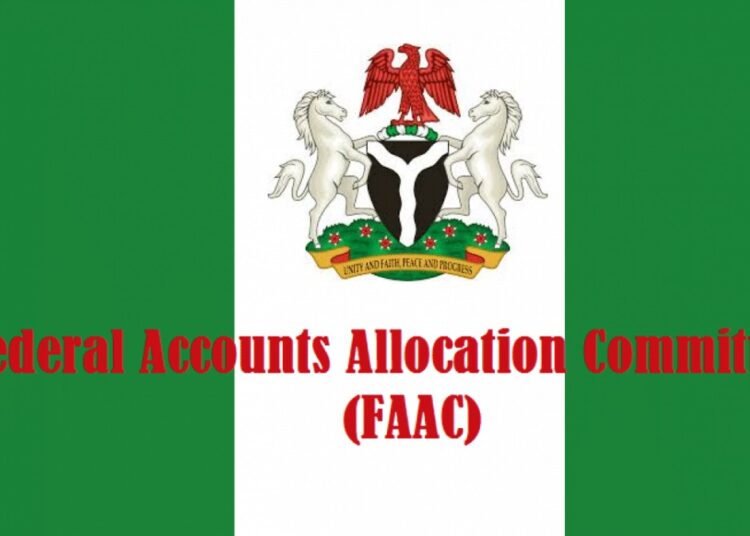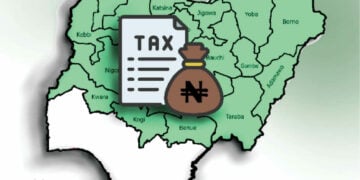In August 2023, the federal, state, and local governments shared 1.26 trillion Naira from the Federation Account Allocation Committee (FAAC), the highest in our history. In July, they shared N966 billion, and from June till date, FAAC has distributed almost 3 trillion Naira. By Nigerian standards, this can be described as jumbo allocations. Compared to many West African states’ revenue, the allocation to many states surpasses their annual budget. Can these jumbo allocations translate to concrete developments devoid of transactions for personal benefit? How can citizens ensure a higher level of fiscal and financial discipline, responsibility, and accountability? Knowing that the problem of monstrous bad governance is real and present at the state and LGA levels, how do citizens hold state and LGA chief executives to account for these resources?
Two Broad Areas Of Concern
There are two broad areas in which public accountability at the level of state governments is concerned. The first and most apparent assumption is that the completion of some infrastructure projects necessarily ‘accounts’ for funds budgeted for capital expenditure. Accordingly, governors go ahead to build flyovers, roads that lead to no economic destinations and other structures. It becomes challenging for a mesmerised public to question the governor’s accountability as he becomes the ‘action governor’. Yet these ceremonial commissions say little about the accountability issues involved.
The second aspect concerns the development of public accountability as integral to democratic culture. In a proper democracy, public officers are responsible for accounting to the public through regular periodic audits. They also have an ethical responsibility to account for their private life expenditure as a function of their statutory income. In the US, public officers are barred from receiving favours from private interests, either cash or kind above $20. Our States are far from this type of transparency and accountability.
Huge Inflow Does Not Equate To Better Public Services
We may be deceiving ourselves if we think that physical resource increase will automatically translate to increased public goods and services by the various states and local governments. History does not support this thinking. We have seen the contrary, where more resources translate to more opportunities for squandering resources with impunity. This sudden revenue flow can create a significant appetite for corruption or mismanagement without institutional control and checks. Some of our elected leaders are ill-equipped to handle this kind of fund. Lacking vision, experience, and managerial capacity, the tendency to channel the resources to things that do not serve the public interest is high.
The matter is even worse due to the lack of robust public scrutiny and surveillance of state resources. The existing public trust and intelligence infrastructure seem inadequate for such scrutiny, or they have been encumbered by legalistic and mundane practices that make up the Nigerian factor. Our media seem not to be doing enough on this, too.
Past Measures To Enhance Accountability
Past governments have put a few measures to provide transparency in revenue allocation. Former Finance Minister Ngozi Okonjo-Iweala introduced the publication of details of monthly allocation to states. This practice of publishing FAAC revenue distribution details to the three government tiers has been sustained by subsequent administrations. The aim is to keep Nigerians abreast with the revenue generation and distribution effort of the Federal Government and help them balance government performance with revenue inflows at all levels. This measure is insufficient to curb corruption in the government revenue regime.
Many extrapolated states and LGAs will publish details of all they receive monthly and their expenditure profile by now. But that is not the case. State revenue and expenditure are still shrouded in secrecy. Only 10 of 36 states have their detailed budget on their website, another measure of transparency. None has its budget performance report on the state website. Less than 20 states publish their audited annual financial statements. To publish monthly financial inflows and outflows is wishful thinking at the state level. The infrastructure and framework for transparency and accountability are just not there.
The second measure implemented by the last administration is the Treasury Single Account. The government brought in this system to harmonise the revenue and payment system. Sadly, only about 20 of 36 states operate the whole bouquet of Treasury Single Account (TSA), meaning others are averse to financial accounting reforms. Some analysts also think implementing the TSA should be followed by the passage of a “Fiscal Sunshine Bill”, which will open up the government’s financial activities in the budgetary process and its implementation. There have also been calls for solid legal sanctions where money is being spent outside its appropriated purpose.
The rot of fiscal and financial abuse in the system runs deep. This is a different time for business than usual. We must challenge the status quo and fight for a new financial accountability and transparency regime. I will advocate for a renewed zeal by state and LGA chief executives to be transparent and accountable. It is not enough to profess to encourage public participation and accountability, which to the average officeholder is a PR stunt, but matching words with actions is more critical.
Need To Strengthen Accountability Framework
We need to strengthen the existing infrastructure of accountability and transparency in the states. The quality of most state legislature could be better. This is because the executive arm has hijacked the state legislature. Most legislators at the state level are handpicked, and often, they do the bidding of the state’s chief executive.
The phenomena of state capture by godfathers and “polititractors” is prevalent and a new elephant in the room. Budgets, project selection and initiation, contractors, approvals, and payments are all made outside the routine government processes. Some chief executives are more symbols of power than a source of authority, more like furniture in the state house. The chief accounting officer in the state is only accountable to his godfather and no one else. How can there be transparency and accountability when chief executive officers are mere puppets in the hands of selfish, self-centred puppeteers who see the states as their extended estates for plundering?
Elections which citizens could use to punish lousy behaviour are few and far between, and even when they occur, there is no guarantee that chief executives with bad records of transparency and accountability will be voted out.
Citizens Laid Back From Demanding Accountability
While there is a growing awareness of the need for accountability, civic engagement and participation in governance processes remain relatively low in many Nigerian states. Citizens are not fully engaged in demanding accountability from their elected representatives. A panoply of reasons suffices for this anomaly.
First, some citizens have become disgruntled and disenchanted with the political system and have lost hope. An average Nigerian believes that corruption is still deeply rooted in our system, so the possibility that their commonwealth will be frittered away is real. It is unreal how it has become normal that citizens have given up fighting for accountability.
The second is the structural lacuna in our constitution that has made it impossible for citizens to hold their leaders accountable for their socio-economic rights. The non-justiciability of Section 6(6)C of the Nigerian constitution makes it difficult for a successful judicial challenge to hold leaders accountable for not providing citizens with their socio-economic rights. In plain language, citizens cannot sue the government for not providing them with socio-economic rights, therefore shielding the leaders from the public challenge of accountability for the state’s resources. This is our albatross!





